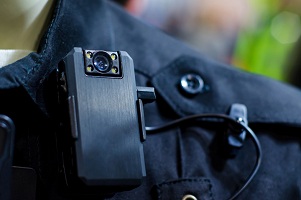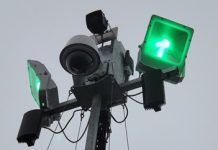For the first time, California correctional officers will be required to use body cameras while interacting with inmates inside a state prison, a federal judge has ordered. The ruling comes in a civil rights lawsuit over disabled inmates’ rights, in which a federal judge found evidence to support allegations of physical abuse of prisoners at the Richard J. Donovan Correctional Facility in San Diego. The order applies to interactions with all inmates with disabilities inside the Otay Mesa facility.
Attorneys for the inmates with disabilities had asked the judge to issue an order mandating body cameras for correctional officers after documenting widespread physical abuse of the inmates. “Body cameras have never been used in California prisons. This is a very important order to help put an end to physical abuse and broken bones of those with physical disabilities at this most dangerous of prisons,” said attorney Gay Grunfeld, whose law firm, along with the Prison Law Office, represents the plaintiffs.
“Body cameras can bring sound and context to situations that involve the use of force which surveillance cameras cannot,” she said. U.S. District Judge Claudia Wilken gave the California Department of Corrections and Rehabilitation a timetable that effectively gives it five months to get the body-worn devices into use. She also ordered that records from body cameras be preserved from use-of-force incidents and that policies be created. State corrections officials declined to address the findings.
“We are unable to comment on specifics of ongoing litigation, but we take the safety and security of the incarcerated population very seriously, and vigorously work to protect those with disabilities. We will be carefully evaluating the order,” Dana Simas, a spokeswoman with the Department of Corrections and Rehabilitation, said in a statement. Wilken also ordered the installation, within four or five months, of widespread surveillance camera systems at critical areas of the prison and the establishment of third-party expert monitor oversight of evidence gathered at the prison.
Wilken ordered those actions as part of an injunction she granted as part of a bigger plan to address allegations of repeated physical abuse and retaliation against disabled inmates who complain about the prison facility. Wilken, an Oakland-based judge, is handling a class-action lawsuit that seeks to guarantee the rights of state prisoners under the Americans with Disabilities Act.








